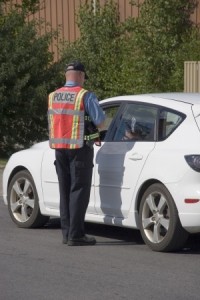
Traffic stops can be rather unnerving. This is even true if you have no reason to be nervous about being pulled over. The most nerve-racking aspect of any traffic stop can be having to stand by while the police search your car, looking for any evidence that you have done something wrong. But what most people don’t know is that you are not required to allow the police to search your car during a simple traffic stop under some circumstances. This article explains this right of refusal as well as how and when it may be exercised.
Your Rights
We are all protected from unreasonable search and seizures under the Fourth Amendment of the United States Constitution and we have a constitutional right to deny permission and refuse to consent to a car search during traffic stops, unless:
1. You are being arrested, in which case the officer can legally search certain areas of your car. For example, he or she may search the vehicle’s cabin using the motor vehicle exception to the general rule that a government search requires a warrant.
2. The police officer has probable cause to conduct a search of your car, which requires that the officer follow strict guidelines pertaining to what evidence qualifies as a “probable cause” to search your vehicle.
What to do
The officer is not likely to remind you that you have the right to deny permission to search your vehicle during a simple traffic stop. However, when the officer asks for permission to search your vehicle, you can refuse to consent to any search, even if the he insists. All you have to do is say “no.” Make it clear that you do not consent to having your vehicle searched and repeat it as many times as you feel necessary. Police vehicles are often fitted with camera that record traffic stops, so be clear enough that the camera can see that you are denying the officer permission.
What not to do
Even if you refuse permission, the officer might still perform a search anyway. When this happens, do not lose your temper. Be cooperative while stating again that you do consent to having your car searched. Do not become verbally aggressive or in anyway physically interfere with the search of your vehicle. If you touch or threaten the officer, you may be charged with “assault and battery of an officer,” which is itself a very serious charge. Finally, do not attempt to flee. This can way heavily against you whether you are innocent or not. Even if your car is not being searched and you don’t think you are being detained, ask for the officer’s permission to leave the scene before driving away.
Conclusion
So, when you are asked by the police for permission to search your car during a simple traffic stop, you can simply say no. If the officer(s) insists on searching your car, remain calm, do not attempt to physically interfere with the search of your car, and contact an experienced attorney as soon as possible to help assert your constitutional rights.
Initial Consultation: Muskogee Traffic Offenses Attorney
To protect your record and your driver’s license, if you are facing a traffic charge, call an experienced Muskogee traffic offenses attorney today at (918) 913-0725, or toll-free at 1 (888) 947-8452 (Wirth Law). If you prefer, you can use the box in the upper right-hand corner of this page to send a brief question or message.






